|
My uncle, Duane Porch, has been putting together guides on managing money, building wealth, and investing. I have excerpted and edited from his work for this post.
Investing Philosophy Where to spend your money… Priorities: God, your family, and others.
God has given us two hands – one to receive with and the other to give with. We are not cisterns made for hoarding; we are channels made for sharing. – Rev. Billy Graham Whoever has a bountiful eye will be blessed, for he shares his bread with the poor. (Prov. 22:9) The best way to get rich quick is to get rich slow. When it comes to wealth building perseverance wins. Sprinters do not. True wealth-building is hard, and it takes time. If wealth- building were easy, everyone would be rich! It is rough, but once you get there, it puts you in a position to bless others and to change your family tree. It is worth it to persevere. - Dave Ramsey
0 Comments
The Millionaire Next Door Review7/24/2021 The Millionaire Next Door by Thomas Stanley & William Danko
This book has sold millions of copies for a reason. It is well-written and well-researched. It also counters much of the conventional wisdom around which people are wealthy and how they become wealthy. Stanley and Danko argue that most millionaires are self-made. They were not born into wealth. And these millionaires often do not act how most Americans might expect them to act. Through extensive surveys, the authors put together general characteristics of most millionaires and drew some comparisons in lifestyle choices between those who are “prodigious accumulators of wealth” (PAWs) and those who are “under accumulators of wealth” (UAWs). Financial Peace by Dave Ramsey7/24/2021 Financial Peace is full of practical advice from setting financial goals to talking with your spouse about your finances to checking your credit report and investing in mutual funds. Ramsey’s main goal is to help the reader take control of their spending and their finances.
This book gave me deeper knowledge and appreciation of the Bible. It is great for beginners who know relatively little about theology but it also offers profound insight and helpful nuance for those who have been reading the Bible for many years. The book has two main parts: tools of biblical theology and stories of biblical theology. I discuss the tools in this essay and the stories in a separate essay Chapter 1: Exegetical Tools: Grammatical-Historical Method When discussing how to understand the Bible, you have to start at the beginning: how do we get at the meaning of the text? Postmodernism and reader-interpretation approaches argue that we have no access to the original or fixed meaning of the author. All we have is our construction or interpretation of the text. Lawrence disagrees. He argues that we can find the meaning of the text, at least most of the time, by using the grammatical-historical method: Discerning the meaning of the text in this way immediately plunges us into an exploration and study of the grammar, syntax, and literary and historical context of the words we’re reading--thus the phrase: grammatical-historical method…. Billion Dollar Whale4/23/2021 Billion Dollar Whale is a fun, easy, fascinating read. It falls in the same genre as Bad Blood about Elizabeth Holmes and the fraud perpetrated by her company (Theranos) and Too Big to Fail about the 2008 financial crisis. Investigative journalists Tom Wright and Bradley Hope researched the story extensively and put it all together with excellent journalistic flair.
The book explores the story of a mysterious character, Jho Low, who was able to funnel billions of dollars from the Malaysian sovereign wealth fund 1MDB into his personal accounts in the Cayman Islands and the British Virgin Islands (among other places) through extremely complex financial and social manipulation. Jho Low, was not an investor, capitalist, or stock trader. He was a thief. He came from a moderately wealthy family in Malaysia that had great aspirations. His family sent him to an extremely expensive and exclusive boarding school in England where many billionaires send their children. At this school Low learned about how the global elite live. He wanted that life too. He began aggressively cultivating relationships with wealthy and powerful people at the boarding school and continued to do so in college and beyond. A key part of his modus operandi was making a show of being wealthier than he was and using his existing connections to provide legitimacy for new connections. It was like a ponzi scheme of relationships. Low used his connections with wealthy middle eastern sovereign wealth fund managers, with the Malaysian prime minister and his family, with celebrities like Leonardo DiCaprio, and with various bankers and financiers around the world to vouch for him and to provide cover and sense of legitimacy as he transferred hundreds of millions of dollars out of 1MDB into shell companies and then from shell companies into legitimate bank accounts. In Great Gatsby style, Low used his money to gamble, to spend millions of dollars on one-night parties he often spent more time observing than celebrating, to jet all over the world, to pay for the Malaysian First Lady to buy tens of millions of dollars of jewelry and high-end clothing and other accessories, to buy part of a large music company, to buy multiple houses in multiple cities around the world, and to form his own movie production company, Red Granite, which ironically enough produced The Wolf of Wall Street… The gall and arrogance of this heist is breath-taking. The way he wasted the money he stole is sickening. Billion Dollar Whale made me think harder about the global elite: who they are, how they live, and whether we should worry about them. Becoming Whole Review4/16/2021 This book tries to marry theology and economics in addressing poverty. The authors want to bring spiritual brokenness or “deformation” into the conversation about why people are materially poor and whether improving their material circumstances should be our highest goal.
This book is about the full Gospel story: Creation, Fall, Redemption, and Restoration. It brings Biblical theology to bear on all kinds of human activity. One way to read the authors’ message is that we (wealthy western Christians) don’t really understand flourishing very well, even for ourselves. The problem is not even that we aren’t good at helping other people become wealthy, it’s that we don’t rightly understand the role of wealth in human flourishing in general. Because they correct not just the methods of poverty alleviation but the goals as well, the authors jump back and forth between discussing what we need to understand in order to help poor people, and what we need to be doing and believing to help ourselves become whole. They offer several schematizations of how historic Christianity has been corrupted or distorted by two alternative views of the world: Traditional Religion and Western Naturalism. They draw a triangle with Historic Christianity, Traditional Religion, and Western Naturalism as the three points. Many western European countries fall between Historic Christianity and Western Naturalism while most developing countries, especially in Africa, fall between Historic Christianity and Traditional Religion. Ruth Study Guide4/2/2021 This study guide synthesizes lessons on the book of Ruth that I led (along with Carson Wong) for Maranatha Grace Church in March 2021. I share these thoughts and reflections for those who want to study and think about Ruth on their own or in a group Bible study. I encourage you to take a quick look at my comments on how and why we should study the Bible before proceeding.
I also encourage you to study the book of Ruth before and while you read this study guide. The process of study is simple but important. Try studying Ruth yourself by making Observations, asking Questions, and considering Meaning. Then compare your understanding with what Carson and I drew out (along with observations from folks in the class). This guide is divided by the four chapters of the book. So, read Ruth chapter 1 and jot down Observations, Questions, and potential Meanings before proceeding. Studying the Bible4/2/2021 Let me share a few general remarks regarding studying the Bible. You should read and re-read whatever text you are studying to become familiar with it. Familiarity makes reflection and meditation on the text easier. It also makes conversation about the text being studied much easier when you (and others) know what happens or what is said well. You can ask better questions when you have a more thorough grasp of the general content.
When reading Scripture, you should be sure to spend time reading large chunks (multiple chapters or an entire book) at one time in order to appreciate context, but you should also spend time reading and dwelling on individual verses to consider carefully what particular words and phrases mean and why they are used. I tend to follow a pretty simple, and certainly not original, process of making Observations, of asking Questions, and of considering the Meaning of a particular text. Observations include plot and characters, conflict and disagreement, commands, resolutions, events, conversations, etc. As you observe, you can easily ask all kinds of questions about the text. Some may be quite easy to resolve just by re-reading the passage. Some may require greater reflection on the events or the meaning of words used. Some may require other research and resources to answer. And some questions you simply may not be able to answer. I recommend the following process for answering questions:
This is the third of three essays on Richard Florida’s book: The Rise of the Creative Class 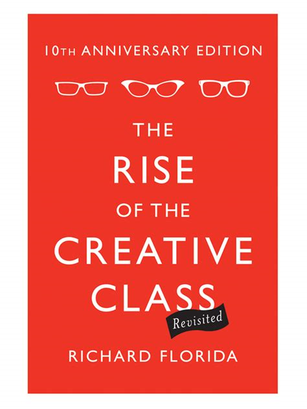 Richard Florida paints a fairly rosy picture of the Creative Class and the future of cities. Obviously there will be challenges and problems to solve, but the more people we can add to the creative class, and the more we can structure our cities to cater to and support the creative class, the better off we’ll be. From an economic standpoint, this is difficult to argue with because there is not much of an alternative. Rebuilding the working class is not possible (nor is it desirable). The service class continues to grow, but it is not likely to create large amounts of wealth for most of those in it. At best, it can reward some talented people highly, while most of the low-paying service jobs like fast food workers, cashiers, shelf stackers, etc. become transitory positions for younger people as they work towards more lucrative careers. Modern technology and innovation dramatically increase the economic returns to those who know how to use them. This fact explains a good amount of the income and wealth gap we see between the top and the bottom of the distributions. Florida seems to hope that we can keep adding more and more people to the top of that distribution and reduce the number in the bottom part. While I find that plausible, I also have serious doubts about how well that distribution can be changed by adding folks to the creative class or whether we can do so. But the deeper challenge of the Creative Class is cultural, social, and philosophical. There are several striking social trends that seem to be driven by the Creative Class. One trend observed decades ago by Robert Putnam in Bowling Alone, was increasing social isolation. There has been a massive increase in the number of people living alone - which has gone hand in hand with declining involvement in clubs, associations, and even traditional family life. Florida describes Putnam’s findings: Cities and the Creative Class2/24/2021 This is the second of three essays on Richard Florida’s book: The Rise of the Creative Class 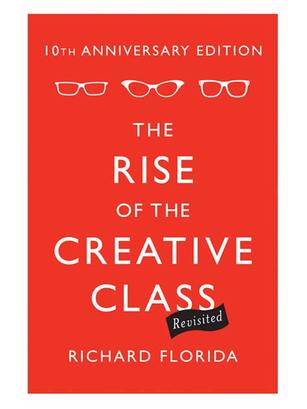 As I mentioned in my previous essay, the creative class tends to congregate in cities. There are many reasons for this: greater intellectual stimulation and diversity, more amenities to enjoy (which also contribute to creativity), and greater tolerance in general of eclectic, heterodox, or even outrageous strange lifestyles, ideas, and beliefs. Urban areas create a milieu of all these different ideas and creative people find challenge and inspiration as they navigate it. Over time, the trends and ideas of the creative class tend to radiate outward into the rest of society (see To Change the World by James Davison Hunter for a nice analysis of how cultural change happens). One of the striking cultural shifts brought about by the Creative Class is a blending of work and leisure. Cities contribute to both. Regarding work, cities boost people’s creativity. They run into more people and different kinds of people than if they were in rural areas. They are constantly seeing new ideas and products coming from competitors. Within their own circles, they can contribute to others projects while also building on what others have done or are working on. At some level, there is a significant amount of serendipity involved in the process – you never know what exact situation, conversation, or idea will spark a burst of creative energy and innovation. AuthorPaul Mueller is a Senior Research Fellow at AIER, a research fellow and associate director for the Religious Liberty in the States project at the Center for Religion, Culture, and Democracy, and the owner and operator of The Abbey Bed and Breakfast. Archives
August 2021
Categories |
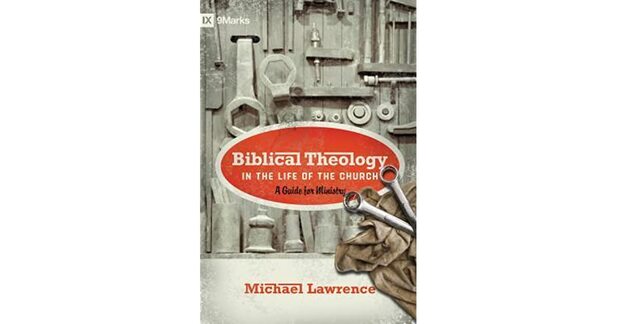
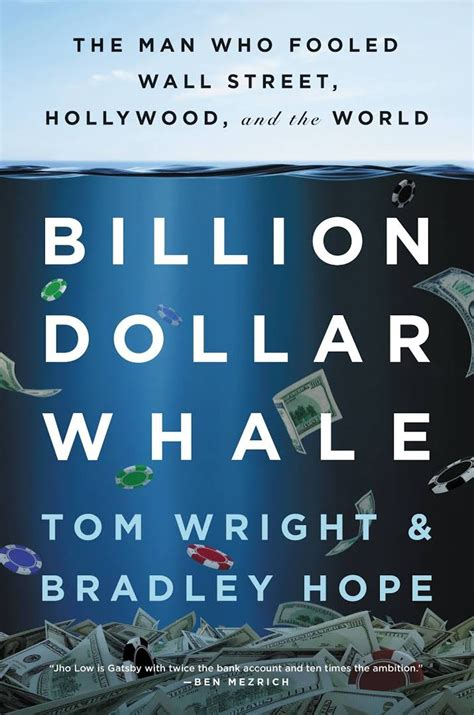
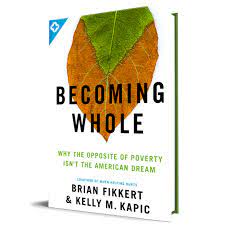
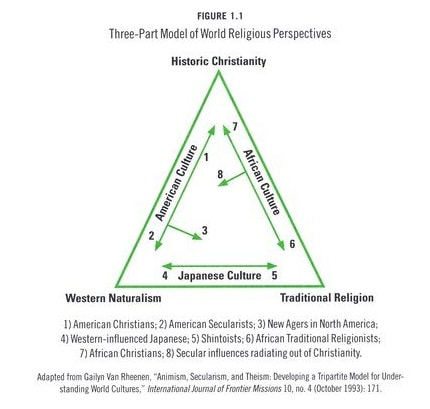

 RSS Feed
RSS Feed
